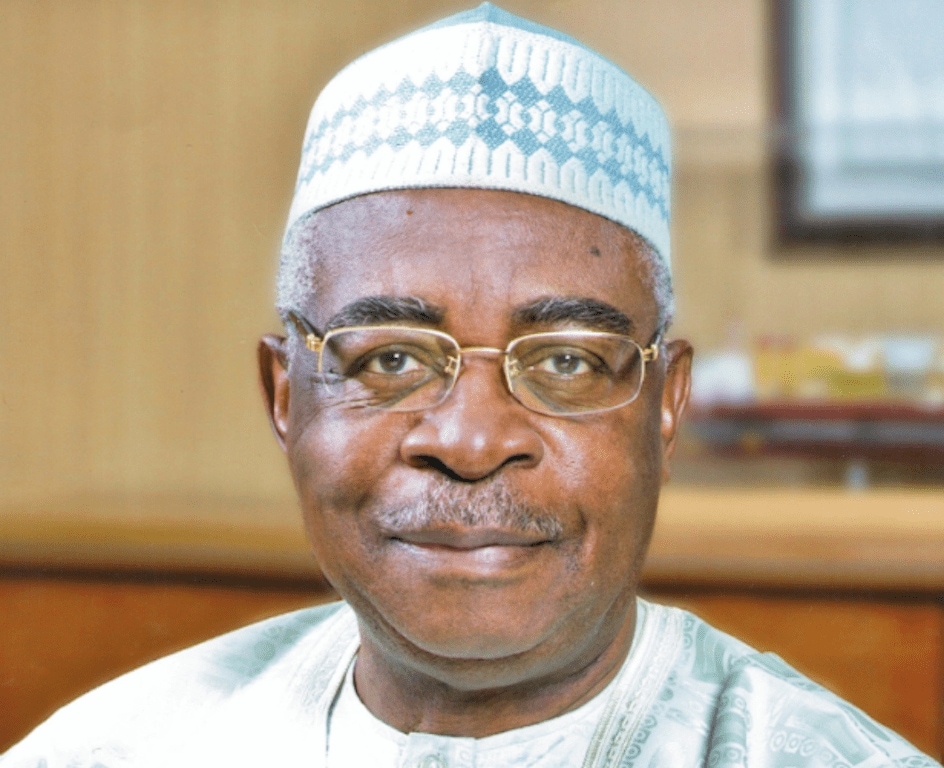A former Nigerian Minister of Defence, Lt.Gen Theophilus Danjuma (retd.), is worth an estimated $1.2 billion (N432 billion), Bloomberg, United States-based financial data media house, said.
Though this is the first time Danjuma’s net worth is made public, the ex-minister was awarded oil block in 1998 by the regime of former dictator and fellow army officer Sani Abacha, making him one of a handful of Nigerians made extraordinarily wealthy from the country’s energy reserves.
Danjuma paid $25 million in 1998 for the oil field exploration licence that made him a billionaire. A year later, he became Nigeria’s defence minister as the country returned to democracy.
Danjuma was mentioned in the Panama Papers in 2017 among prominent Nigerians that operated foreign accounts and had foreign companies while holding public office.
The retired general was also among global personalities found to maintain secret accounts, operated with codes, with the Swiss branch of banking giant, HSBC.
According to Bloomberg’s latest report, Danjuma owns not less than 30 properties worldwide some of which include hotels, luxury apartments and others.
Bloomberg said in a report that Danjuma had also acquired the ‘Kings Arms Hotel’, a 300-year-old inn next to London’s Hampton Court Palace, once the home of King Henry VIII.
It’s set to open soon after refurbishment, with rooms costing about 250 pounds ($318) a night.
The report read in part, “In this most English of settings, it’s fitting the owner is a retired military man still referred to as “General.” But for Theophilus Danjuma, this is just one investment in a network of assets that span at least three continents.
“The 80-year-old Nigerian is worth $1.2 billion, according to the Bloomberg Billionaires Index, with his family office managing a portion of that wealth, often through low-key holdings such as the 14-room hotel.”
Hannatu Gentles, the second daughter of the retired general, confirmed to Bloomberg in an interview that the property was indeed bought by the family and would bear the ‘Danjuma’ name.
She said they paid 2.4 million pounds (N1.09 billion) for the hotel.
Gentles said redevelopment work was expected to end in March, filings show, but the inn’s age and protected status resulted in higher costs and delays.
“This is the first, and will possibly be the last, listed building we’ve worked on,” Gentles said. “It’s taken longer than we wanted, but our name is attached to the building and we want to be proud of our work. It’s been a hard slog.”
Danjuma was born in 1938, the year Royal Dutch Shell received its first oil exploration licence for the country and more than two decades before it gained independence from Britain.
He dropped out of college in 1960 to join the army, according to “Nigerian Politics in the Age of Yar’Adua” by Bayode Ogunmupe. He gained prominence after participating in the 1966 counter-coup against Nigeria’s first military dictator.
Danjuma’s new venture is far removed from civil war and deep water oil fields, the spheres where he amassed his power and fortune.
In 2006, his South Atlantic Petroleum Ltd. sold almost half its contractor rights for a section off Nigeria’s coast to a state-backed Chinese firm for $1.8 billion.
A decade later, he was stepping out of a Rolls-Royce in central London to meet British military officials in his role as chief of staff for Nigeria’s army. He left the military in 1979 and founded his oil firm and a shipping company, NAL-Comet, which now has more than 2,000 employees in Nigeria.
“Basically, these people got winning lottery tickets,” said Antony Goldman, founder of West Africa-focused ProMedia Consulting. “At the time, you had a government desperate for credibility that was isolated internationally.” Danjuma was “someone who’s not really a politician, who is respected in business and in the army.”
He originally teamed up with Total SA and Brazil’s Petroleo Brasileiro SA on the block. The minority stake that Danjuma’s company now owns is worth $450m, according to Bloomberg’s wealth index.
“Beyond the UK, they own real estate in California and have bought and sold property in Singapore. Their family office also oversees private equity investments, trust funds and a venture capital arm that backs family-run art and film companies. The Danjumas own more than 30 properties worldwide, filings show,” the report stated.
Confirming this, Danjuma’s daughter added, “We invest in real estate in other jurisdictions, but in the UK we always thought let’s stick to areas that we know.”
She noted that her father bought a residence in Singapore years ago, “and it made sense then to buy some more,” she said, adding they’ve since sold the properties because of tax law changes.
In addition to the Kings Arms Hotel, the Danjumas have developed residential properties this year in Esher and Wimbledon. They also own a boutique hotel in Lagos, serving beef carpaccio and lobster bisque in one of three dining areas and displaying works from the family’s art firm.

